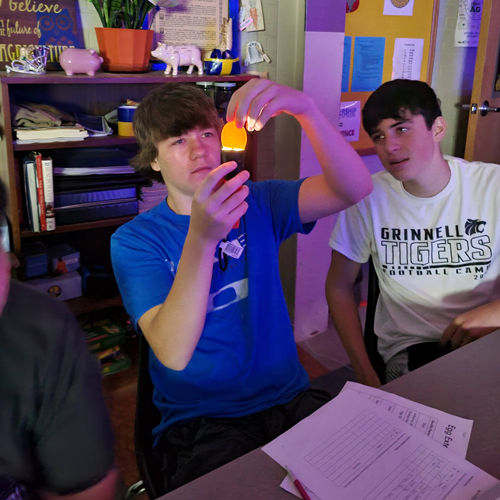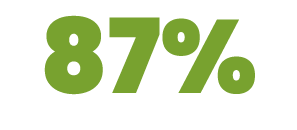Sign up for National Teach Ag Campaign Nominate a Future Ag Teacher
Pathway to the Profession - There are many ways to become an agriculture teacher in Iowa. Click on the pathway document to explore the various pathways to this rewarding career!
Agricultural education prepares students for successful careers and a lifetime of informed choices in the global agriculture, food, fiber and natural resource systems. You can learn more about the work of Iowa Agricultural Education at teamaged.co.
Students who are interested in pursuing a position in agricultural education need to study a broad spectrum of agriculture related courses, along with education-based coursework.
Experience in working with the Career and Technical Student Organization (CTSO) of FFA is always positive in learning how to deliver all three components of the agricultural education model.
The icons below link to schools in Iowa where you can earn your degree in agricultural education. Click on each to explore that school's agricultural education program.
You can also enroll in a community college or other 2-year degree program, then transfer to one of the above schools to earn your bachelor's degree. If transferring, work with the transfer institution to be sure credits apply.

Student teaching is the culminating experience in the teacher preparation program and signifies the transition from a student role to a professional educator role. During student teaching a student teacher will be able to integrate theoretical information in a practical, applied setting to prepare for a career in education.
You will have the opportunity to become an integral part of your host school system under the direction of an expert cooperating teacher and a supervisor. Research shows that the classroom cooperating teacher is the most important contributor to an emerging educator’s professional growth and development.
The professional expertise provided and the time and effort devoted are crucial to the success of the student teacher. The supervisor is also important in the professional growth and development of the student. The supervisor makes frequent visits to the classroom and gives feedback to help ensure the experience is successful. All faculty and staff involved will do their best to make student teaching a rewarding experience for all.
All education-related jobs in Iowa's public schools, non-public schools and area education agencies can be found on the IOWAWorks website.
Applicants may search for all education-related jobs, including non-teaching positions, by clicking the Search for PK-12 Jobs button.
As a teacher, you have an opportunity every day to impact the lives of young people. The Golden Owl recognizes the many great agriculture teachers who are in the classroom daily helping students pursue their passions.
-Dr. Michael Retallick, Professor, Iowa State University
Seeing students achieve success is my greatest accomplishment as a teacher! Agricultural education is a great career. Whether you're in the classroom, doing FFA activities, or working with students in the ag mechanics or land lab, no two days are the same.
-Micah Weber, Agriculture Teacher, Rock Valley High School
Seeing students achieve success is my greatest accomplishment as a teacher! Agricultural education is a great career whether in the classroom, doing FFA activities, or working with students in the ag mechanics or land lab, no two days are the same.
-Elsa Schmidt, Agriculture Teacher, Mid-Prairie Community School District

The agricultural education program provides a well-rounded, practical approach to learning through: classroom education, hands-on supervised agricultural career experiences and leadership development through the FFA.

In Iowa, 100% of Agriculture Career and Technical Education programs have a student organization (CTSO) - FFA.

81% of Ag Ed students pursue post-secondary education and/or military upon graduation.

Iowa Ag Ed students earned $39.3 million dollars from their SAE projects in 2023.
Do you already have a degree and/or experience in another area and want to teach agriculture in Iowa?Alternative certification information can be found by contacting:
Dave Wempen, Consultant
Iowa Board of Educational Examiners
david.wempen@iowa.gov
OR
Matthew Eddy, Agriculture Consultant / State FFA Advisor
Iowa Department of Education
matthew.eddy@iowa.gov
Matthew Eddy
Agriculture Consultant / State FFA Advisor
515-720-8863
matthew.eddy@iowa.gov